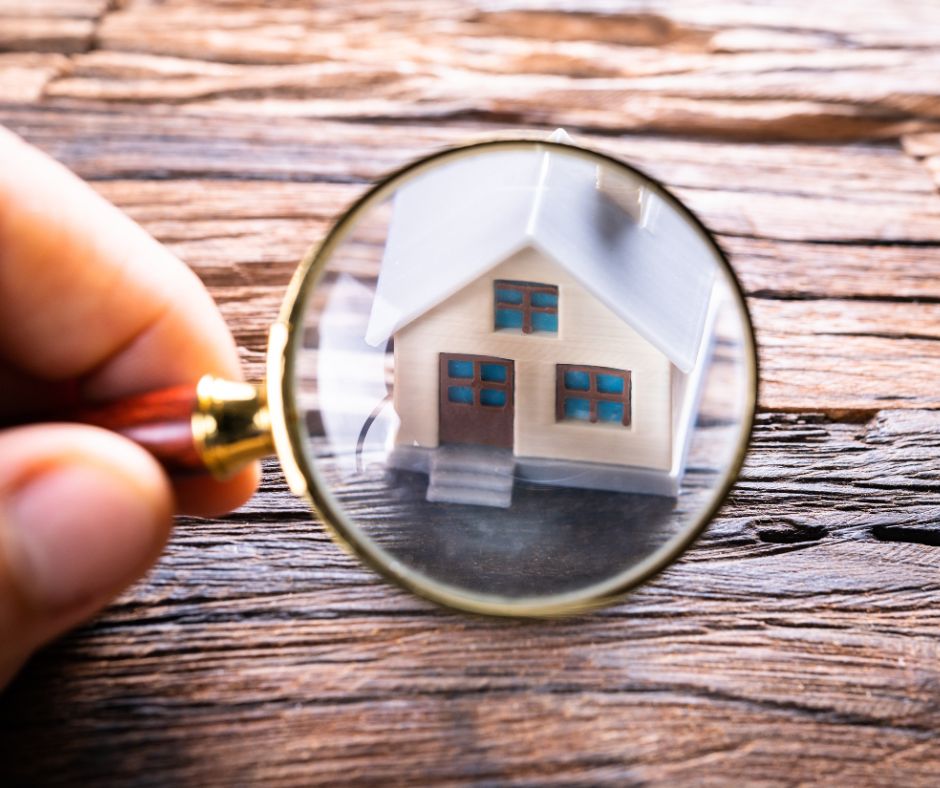
Do I Really Need A Home Inspection?
You have been searching for months for the right home at the right price. You may have even made an offer or two only to have lost to another buyer. You’ve finally found THE ONE and your offer has been accepted. The house is well-maintained and in great condition. Do you really need a home inspection? An inspection costs hundreds of dollars and is another thing to schedule, which could prolong the closing date. Is there any value in having a house that looks this good inspected?
The short answer is YES! There are critical facets of a home that should be reviewed and tested to protect your potential investment. Even if a home look perfect, there could be concerning items such as wiring and plumbing that you cannot see. In addition, if you plan on financing your home, most lenders will require a home inspection in order to approve your mortgage.
What is a Home Inspection?

A home inspection is a thorough examination of a property’s condition, typically conducted by a professional home inspector. It involves evaluating the physical structure and systems of a home, from the foundation to the roof, to identify any existing or potential issues. Here’s what a home inspection typically involves and why it’s crucial for homebuyers:
What a Home Inspection Involves
- Structural Components: The inspector examines the foundation, walls, roof, attic, ceilings, floors, windows, and doors. They look for signs of structural damage, such as cracks in the foundation, sagging roofs, or uneven floors.
- Foundation: Inspect for cracks, shifting, or other signs of instability.
- Framing: Check for signs of damage or wear in the framing of the house.
- Roof: Examine the condition of shingles, flashing, gutters, and any potential leaks or damage.
- Walls and Ceilings: Look for cracks, water damage, or structural weaknesses.
2. Exterior: The inspection includes an assessment of the exterior features of the home, including siding, gutters, downspouts, decks, porches, and the condition of the driveway and walkways
- Siding: Inspect the condition of the siding, including wood, vinyl, or brick, for damage or deterioration.
- Windows and Doors: Check for proper sealing, operation, and signs of rot or damage.
- Decks, Porches, and Patios: Assess the structural integrity and condition of outdoor structures.
- Driveways and Walkways: Look for cracks, uneven surfaces, and other signs of wear and tear.
3. Roofing: The inspector checks the condition of the roof, including shingles, flashing, and chimneys. They look for signs of leaks, damage, or wear and tear that might need repair or replacement.
- Shingles: Inspect for missing, damaged, or aging shingles.
- Flashing: Check around chimneys, vents, and other roof penetrations for proper sealing.
- Gutters and Downspouts: Ensure they are properly attached and directing water away from the foundation.
4. Plumbing: The plumbing system, including pipes, fixtures, water heaters, and sump pumps, is thoroughly checked. The inspector looks for leaks, corrosion, water pressure issues, and proper functioning of all plumbing components.
- Pipes: Check for leaks, corrosion, and proper insulation.
- Fixtures: Test sinks, toilets, showers, and tubs for functionality and leaks.
- Water Heater: Assess the condition, age, and proper operation of the water heater.
- Drainage: Ensure proper drainage and look for signs of blockages or slow drains.
5. Electrical: The electrical system is inspected to ensure it meets safety standards. This includes examining the electrical panel, wiring, outlets, switches, and ensuring that the system is properly grounded.
- Wiring: Inspect for outdated or hazardous wiring practices.
- Electrical Panel: Check for proper labeling, functioning breakers, and overall safety.
- Outlets and Switches: Test for proper operation and ensure they are grounded.
- Lighting Fixtures: Ensure all installed lighting fixtures are operational.
6. Heating, Ventilation, and Air Conditioning (HVAC): The HVAC system, including the furnace, air conditioner, ductwork, and vents, is evaluated for proper operation and efficiency. The inspector checks for any signs of damage or need for maintenance.
- Furnace and Air Conditioner: Check for proper operation, age, and signs of wear or damage.
- Ductwork: Inspect for leaks, proper insulation, and cleanliness.
- Ventilation: Ensure adequate ventilation in attics, basements, and crawl spaces.
7. Interior: The interior inspection covers walls, ceilings, floors, stairways, railings, and other interior features. The inspector looks for signs of damage, mold, mildew, or other issues.
- Walls, Ceilings, and Floors: Look for signs of damage, wear, or potential structural issues.
- Stairways and Railings: Ensure they are secure and up to code.
- Doors and Windows: Check for proper operation, alignment, and sealing.
8. Insulation and Ventilation: Proper insulation and ventilation are critical for energy efficiency and comfort. The inspector checks the insulation in the attic and crawl spaces and ensures proper ventilation throughout the home.
- Attic and Crawl Space: Inspect for proper insulation levels and ventilation to prevent moisture buildup and energy loss.
- Basement: Check for signs of moisture, mold, or structural issues.
9. Appliances: Built-in appliances, such as stoves, dishwashers, and garbage disposals, are tested for functionality.
- Built-In Appliances: Test stoves, ovens, dishwashers, and other built-in appliances for functionality.
- Laundry Appliances: If included, check the operation of washers and dryers.
The Home Inspection Process
- Scheduling: Arrange a home inspection with a qualified and licensed home inspector, ideally after your offer has been accepted but before the closing date.
- On-Site Inspection: The inspection usually takes 2-4 hours, depending on the size and condition of the property. The inspector will examine all accessible areas and systems of the home.
- Documentation: The inspector takes notes and photographs to document their findings.
- Inspection Report: After the inspection, the inspector provides a detailed report outlining their findings. This report includes descriptions of issues, photographs, and recommendations for repairs or further evaluation by specialists.
- Review and Decisions: Review the inspection report with your real estate agent and decide on any actions, such as requesting repairs from the seller, negotiating the sale price, or, in some cases, walking away from the deal.
Importance of a Home Inspection
- Uncover Hidden Issues: A home inspection can reveal hidden problems that may not be immediately apparent, such as structural issues, faulty wiring, or plumbing problems. Identifying these issues early can prevent costly repairs down the road.
- Negotiation Tool: The inspection report provides valuable information that can be used to negotiate with the seller. If significant issues are found, you can request repairs, ask for a price reduction, or even back out of the deal if the contract allows.
- Safety: Ensuring the home is safe is paramount. The inspector checks for potential safety hazards, such as electrical problems, carbon monoxide leaks, or structural weaknesses that could pose risks to you and your family.
- Future Planning: Understanding the condition of the home helps you plan for future maintenance and repairs. The inspection report can guide you in budgeting for upcoming expenses and prioritizing projects.
- Peace of Mind: Knowing the true condition of the home provides peace of mind. It helps you make an informed decision and feel confident about your purchase.
- Investment Protection: Buying a home is a significant investment. A home inspection protects your investment by ensuring you are aware of any issues that could affect the home’s value and your enjoyment of the property.
Conclusion

A home inspection is a critical step in the homebuying process. It provides an in-depth assessment of the property’s condition, uncovering any existing or potential issues. By having a professional home inspection, you gain valuable insights that can inform your purchasing decision, negotiation strategy, and future maintenance planning. Ultimately, it helps ensure that you are making a sound investment and moving into a safe, well-maintained home.
